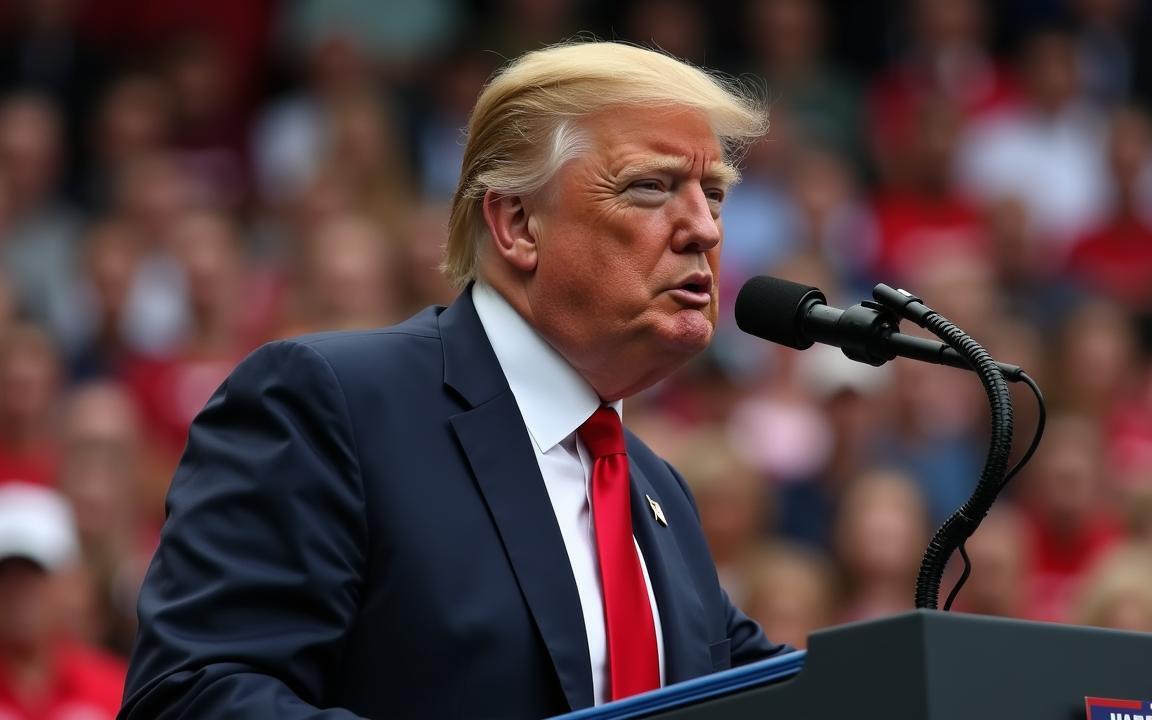President Donald Trump’s “America First” trade policy, among the most protectionist in nearly a century, is set to introduce “reciprocal tariffs” from April 2.
The move is aimed at addressing what Trump’s administration describes as an “unfair and unbalanced” global trading system, particularly targeting nations with trade surpluses against the US.
India, which has maintained a strong trade surplus with the US, is expected to face intense pressure under the new policy.
The plan, first outlined in the “Fair and Reciprocal Plan,” grants the US president authority to impose tariffs on countries that charge higher import duties on American goods than the US does on theirs.
With India’s automotive and agricultural tariffs significantly higher than US rates, these sectors are likely to be primary targets.
The strategy appears designed to force India to open its market to more American exports, particularly in industries where the US is seeking to expand its global footprint.
US seeks to expand auto exports with reciprocal tariffs
One of the main sectors under scrutiny is India’s automotive market, where high import tariffs have long been a sticking point in trade negotiations.
India imposes tariffs exceeding 100% on some categories of vehicles, a policy that the Trump administration sees as a barrier to American auto manufacturers.
The US was the second-largest passenger car producer in 2023 and ranked fifth in global car exports.
However, American companies have struggled to compete with leading exporters from Europe and China.
The reciprocal tariffs plan is seen as a strategy to push India into lowering its automobile import duties, which would create additional demand for US-made vehicles.
Given that India is one of the fastest-growing automotive markets, American automakers stand to benefit significantly if trade barriers are reduced.
Agricultural trade expected to be a key battleground
The US agricultural sector is another likely focal point of Trump’s reciprocal tariffs policy.
The US remains one of the largest exporters of key agricultural commodities such as maize, wheat, and soybeans.
While American wheat exports have declined in recent years, the US still dominates the maize market and remains the second-largest soybean exporter after Brazil.
India has traditionally maintained high agricultural tariffs to protect its domestic farmers, but this has limited US access to the market.
The Trump administration’s push for reciprocal tariffs suggests it will attempt to force India to lower these trade barriers, making it easier for American agricultural exports to enter the country.
The move could have wide-reaching implications for India’s farming sector, which employs a significant portion of the population and has been resistant to opening up to foreign competition.
Electronics and pharmaceuticals could also face pressure
While agriculture and automobiles have been highlighted as key areas of concern, the reciprocal tariffs policy could extend to other industries where the US has significant trade interests.
Electronics and pharmaceuticals are among the sectors that could come under scrutiny due to the existing tariff differentials between India and the US.
India’s pharmaceutical industry is a crucial global player, particularly in the generic drug market.
Nearly half of all generic medicines consumed in the US originate from India, according to IQVIA.
These medicines saved American consumers an estimated $219 billion in healthcare costs in 2022 alone.
The imposition of reciprocal tariffs could disrupt this supply chain, leading to higher costs for US consumers while also impacting India’s pharmaceutical exports.
Electronics, another sector where India has seen rapid growth, could also face increased tariffs.
The US remains a major exporter of high-tech goods, and Trump’s administration could use reciprocal tariffs as leverage to gain better access to the Indian market.
Reciprocal tariffs could reshape US-India trade relations
The implementation of Trump’s reciprocal tariffs policy is likely to mark a turning point in US-India trade relations.
While the US aims to reduce its trade deficit, the strategy carries risks for both economies.
India may respond with retaliatory measures, potentially affecting American exporters that rely on the Indian market.
Trade wars often result in increased costs for consumers and businesses, and the impact of the reciprocal tariffs will depend on how aggressively they are enforced.
With India’s growing economic importance, the outcome of this policy could shape the future of trade dynamics between the two nations.
The post Trump’s reciprocal tariffs plan targets India’s trade surplus and key industries appeared first on Invezz

